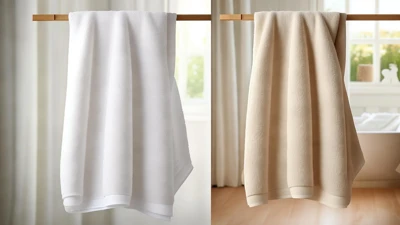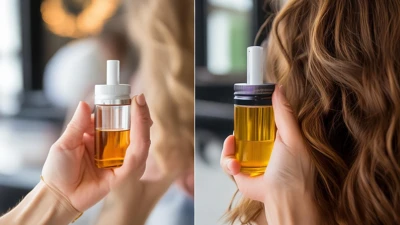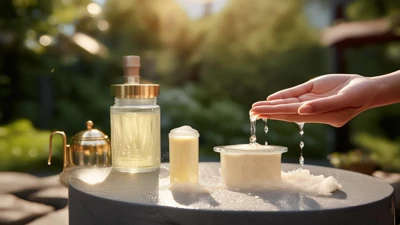
Why Choose Between Cotton and Bamboo Towels if You Have Sensitive Skin?
If you have sensitive skin, use products made from gentle and non-irritating materials. This will reduce redness, dryness, and discomfort. The suitability of cotton and bamboo fiber towels is a common topic of discussion given the vast array of options. The essay evaluates both materials across five key areas: material technology, skin-related research, environmental harm reduction, cost analysis, and firsthand accounts from users with sensitive skin.
Texture, Absorbency, and Durability Are Key Material Properties
Cotton Towels: A Timeless and Reliable Choice
For centuries, cotton has set the standard in the textile industry. Its combination of softness, breathability, and absorbency makes it a top choice for many users. All cotton is not made the same way:
Softness and reduced irritation are common traits of organic cotton, as it is cultivated without pesticides. Residual chemicals in conventional cotton can make it harsher. Research published in 2022 concluded that organic cotton fibers are smoother. This reduces the amount of friction experienced by sensitive skin.
With a porous structure, cotton can absorb water at an impressive rate of 27 times its weight, making it perfect for drying applications.
High-grade cotton ensures the towels remain durable over time. There is no significant degradation in Turkish or Egyptian cotton even after frequent washing.
The Use of Bamboo Fiber is a Breakthrough in Towel Sustainability
Eco-friendly bamboo fiber originates from the bamboo plant and is gaining popularity. Key attributes include:
One key feature of bamboo fibers is that they are naturally round and smooth. As a result, they rarely cause skin irritation. In 2021, a Dermatology Times report stated that the silky nature of bamboo decreases damage like microtears on sensitive skin.
In a 2020 study, the Textile Research Institute discovered that bamboo towels absorb moisture significantly faster than cotton towels.
Durability: Bamboo is strong in wet conditions, but repeated washing can cause its fibers to weaken. A survey by EcoHome Magazine in 2023 indicated that 60% of bamboo towel users had pilling problems after 12 months.
If you struggle with eczema, try bamboo towels. They tend to feel cooler and smoother than cotton towels, no matter how soft the cotton is. They have a drawback. After multiple washes, they tend to pill.
Skin Compatibility: Insights from Dermatology
There is skepticism about hypoallergenic claims.
Both materials are sold as hypoallergenic. However, the way they are produced affects this claim.
Formaldehyde and dyes in regular cotton could lead to allergic reactions. According to a 2019 case study in Contact Dermatitis, dyed cotton towels were connected to contact dermatitis in 15% of participants.
Sodium hydroxide is frequently used in the viscose process for bamboo fabric, and this can result in residues. In contrast, bamboo towels that have OEKO-TEX certification (e.g., Chemical safety tests are strictly conducted on products from Bambu Home.
Antimicrobial Properties
Compounds such as kun and bamboo quinone give bamboo its antimicrobial ability, preventing bacteria from thriving. According to a 2022 study in the International Journal of Cosmetic Science, bamboo towels were 40% more effective at reducing acne-causing bacteria than cotton towels.
When the Mayo Clinic surveyed 200 sensitive-skincare patients in 2021, 72% reported preferring bamboo towels for post-facial care, attributing this to fewer breakouts.
How Sustainability and Ethics Shape Environmental Outcomes
Cultivation Practices
A staggering 2,700 liters of water is needed for one shirt in conventional cotton farming. Moreover, it is responsible for 16% of insecticide consumption worldwide. One major example of environmental harm is the Aral Sea's disappearance, driven by Uzbekistan's cotton farming practices.
Did you know? Bamboo shoots up as much as 3 feet each day without the use of pesticides. Additionally, its water needs are 30% lower than those of cotton. In China, the practice of monoculture bamboo farming has resulted in soil degradation in places like Sichuan.
Processing and Biodegradability
Dyeing cotton requires intensive chemical use, which harms waterways, although mechanical processing is low-impact.
Toxic wastewater is a byproduct of the viscose process with bamboo, but closed-loop systems offer a solution to this issue. The use of Lyocell can address this concern. Bamboo is environmentally friendly because it is biodegradable. Synthetic blends are not eco-friendly.
While bamboo is eco-friendly, I care more about OEKO-TEX certification to ensure ethical practices.
Long-Term Value When Considering Costs
Initial Investment
Basic cotton towels typically cost around $5 to $20. Organic options (e.g., Coyuchi's pricing starts at $30 and goes up to $60.
Bamboo towels start at $25 for budget options. Premium brands like Cariloha go for $50 and above.
Longevity and Care
With the right care, cotton products have a lifespan of 5 to 7 years.
Bamboo: It may need more delicate wash cycles. Its lifespan typically ranges from 3 to 5 years.
Consumer Reports in 2023 discovered that bamboo towels handle moisture 20% better. Yet, due to their quicker replacement needs, cotton remains the better financial choice long-term.
Experiences of Users Alongside Cultural Patterns
Insights Gathered from Sensitive Skin Forums
According to a 2023 poll on Reddit's r/SensitiveSkin, 68% of 1,200 users liked bamboo for being soft, while 22% went back to cotton due to issues with durability.
Instagram stars include an environmentally aware dermatologist. Ranella Hirsch (@drhirsh) highlights bamboo as a good option for rosacea sufferers. The skincare brand CeraVe, however, highlights cotton for its hypoallergenic qualities.
Cultural Evolution and Market Development
There has been a 15% yearly rise in bamboo textile production since 2018. This is driven by consumer interest in eco-friendly products. In hospitals, cotton stays dominant. This is because it works well with sterilization methods.
When I mentioned my perioral dermatitis, my dermatologist said bamboo might be a better option for me. While my initial trials were successful, I've decided to rotate between bamboo and organic cotton for better comfort and usability.
A Word From Beautyvs
For sensitive skin, both cotton and bamboo fiber towels have unique advantages. Choosing between them requires considering personal needs.
Durability, cost-effectiveness, and hypoallergenic features make cotton a top choice. Always prefer organic and dye-free cotton.
Bamboo offers superior softness, manages moisture well, and is eco-friendly. Always choose high-quality, certified products.
Ultimately, what is 'better' is determined by juggling personal skin issues, ethical standards, and lifestyle preferences. Most people benefit from a dual approach: bamboo for face care and cotton for drying the body.














